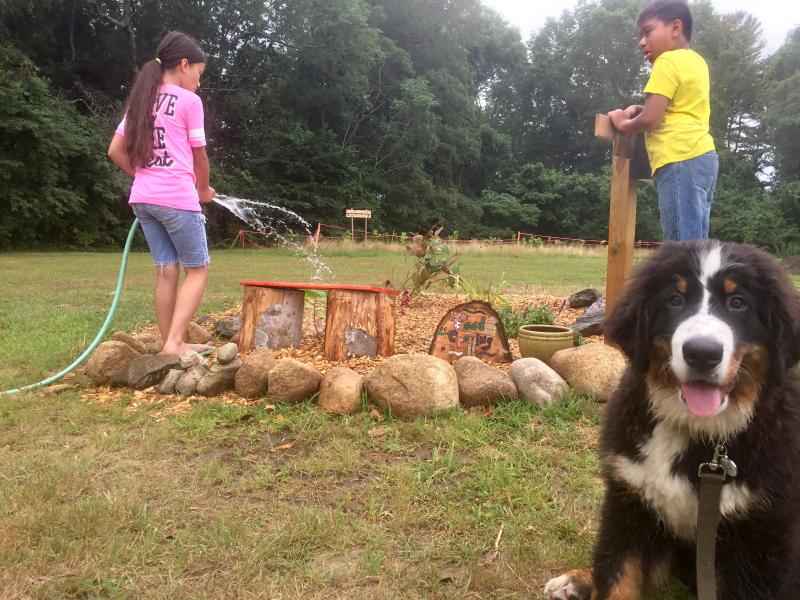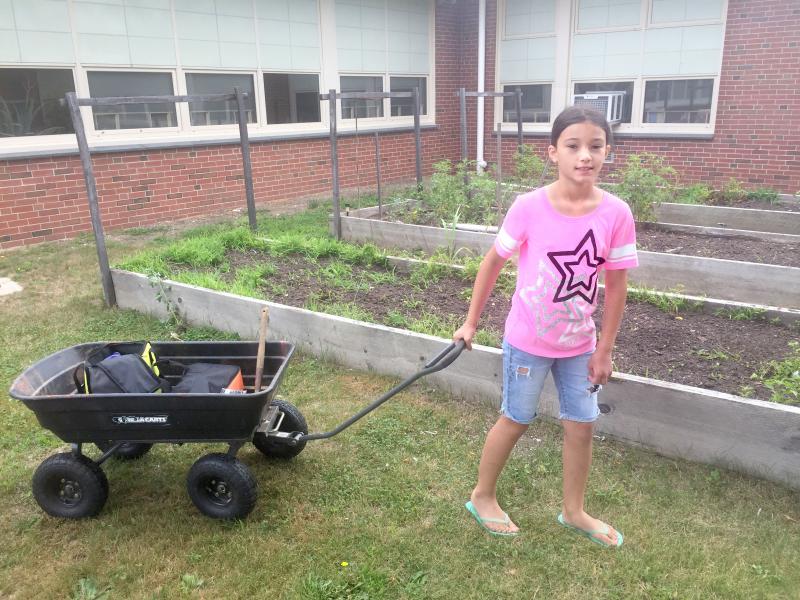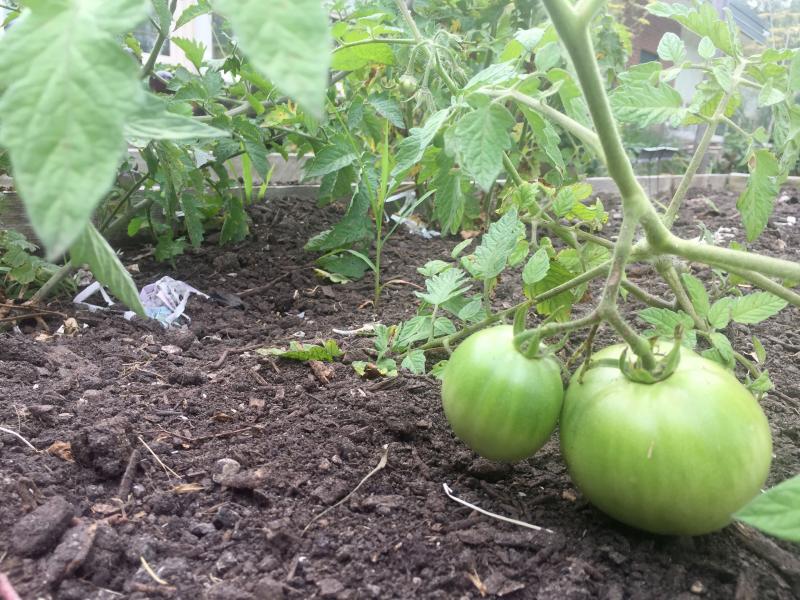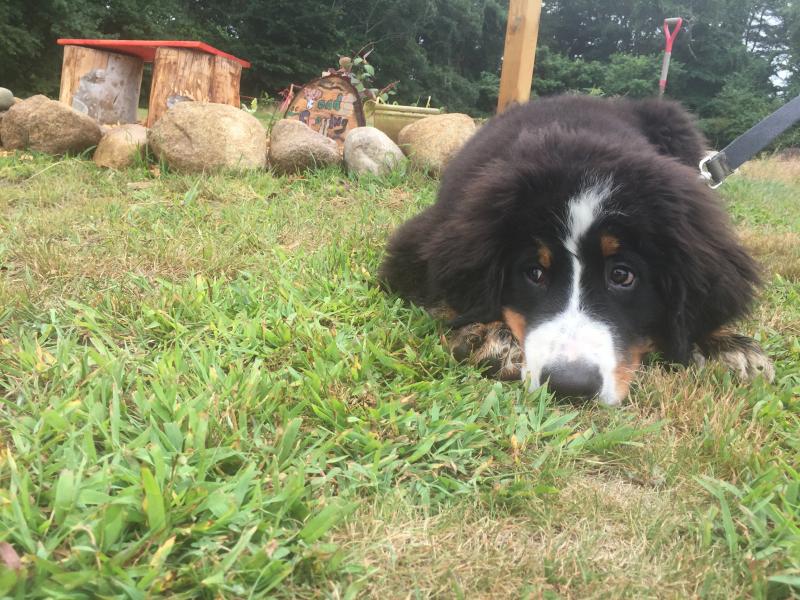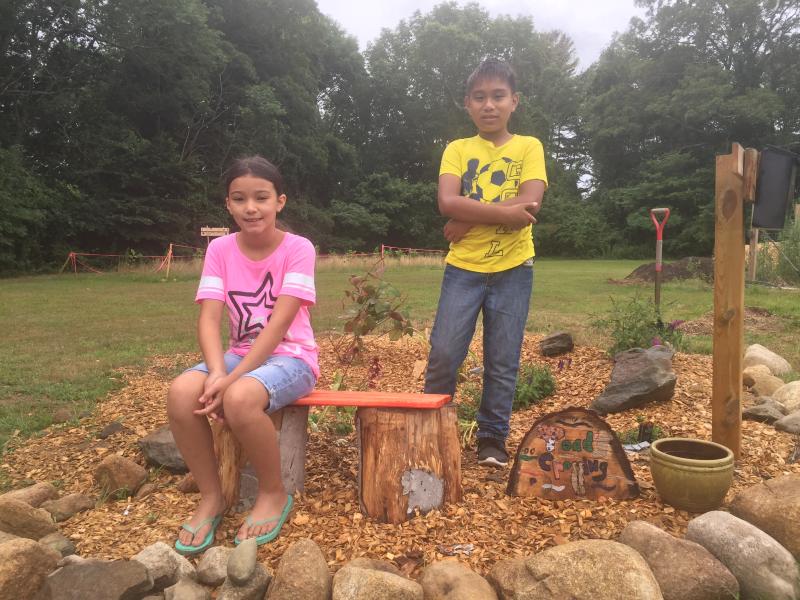Strawberries and science: School garden blooms with summer programming
Nestled behind Potter School are a 40-by-50 foot pollinator garden, a 40-tree nursery, and another five raised beds for vegetables.
Typically, the elementary students tend the garden as part of a science, technology, engineering, and math (STEM) class, but fifth grade teacher Anne Goodman had an idea to keep the gardens growing during the summer.
Alongside the Parks Department, Goodman started the Summer Gardening Institute, a four-week gardening program open to all students.
"We want to have an outdoor classroom. In this world, all we do is test them. This is so nice," said Goodman.
The new club only attracted two fifth graders and one Bernese mountain dog this summer, but Valerie Emond, Jan Piayas, and Odin (who belongs to Goodman) have learned quite a bit.
"I've learned that you have to harvest garlic by digging it up with a shovel. I thought you just pull it up," said Emond.
While Piayas has spent a fair amount of time weeding and watering, he said his favorite lessons involved using power tools. The two built two benches — wood slabs set across tree stumps — for the 185 Cross Road property.
In their downtime, the 10 year olds taught 13-week-old Odin to sit and shake. The puppy is still mastering the "stay" command, however.
Both Emond and Piayas said they have gardens at home, which inspired their involvement.
"I like how you get your hands dirty," said Emond, who grows kale, carrots, and corn.
"My mom and dad — we have a garden, and they wanted me to garden instead of them," said Piayas, ready to put his new skills to use.
On site, the school grows tomatoes, strawberries, pumpkins, and garlic. Emond recently finished packaging garlic for sale at Farm & Coast Market, and Goodman is looking forward to the fall harvest.
"It's nice for the kids to see all that because they don't know where food comes from. Digging up potatoes in the fall is going to be great!" she said.
The first onsite garden, which allowed students to explore pollinators first hand, started with funding from the Dartmouth Education Foundation, Goodman said. The gardening effort has since expanded to include a compost bin and vermiculture .



